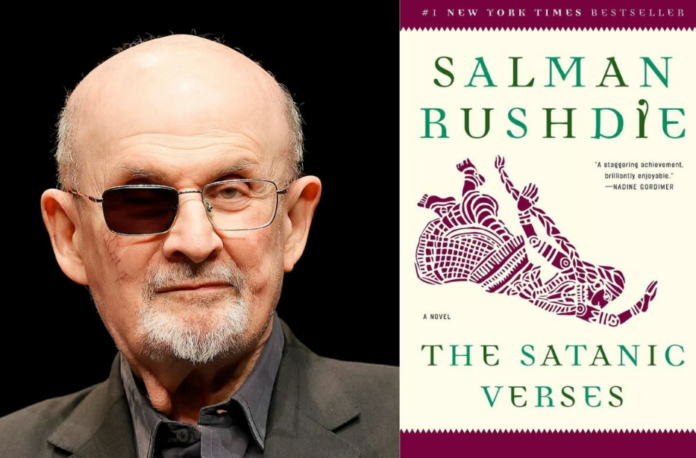Salman Rushdie’s controversial book The Satanic Verses has returned to Indian bookstores for the first time in 36 years, following a Delhi High Court decision to lift restrictions on its availability. The book’s reappearance has reignited a political and social debate, drawing sharp reactions from political parties, religious leaders, and civil society.
The Rajiv Gandhi government had banned the import of the book in 1988, citing its blasphemous content and growing public outrage. The decision, coming just days after the book’s release in the UK on September 26, 1988, was reportedly influenced by a letter from Penguin India director Khushwant Singh to then Prime Minister Rajiv Gandhi, urging the government to proscribe the book. Critics, however, have long labeled the move as regressive and politically motivated, particularly in the aftermath of the Shah Bano case.
Kanchan Gupta, Advisor to the Ministry of Information and Broadcasting, refuted claims that the ban was a reaction to public protests. “This is how Congress spins its fables and media amplifies it, turning fact into fiction. The Satanic Verses was proscribed (its import prohibited) even before the book went on sale or anybody had read it,” Gupta posted on X. He added, “It is apt that the book reappears in Indian bookstores during the birth centenary of former Prime Minister Atal Bihari Vajpayee, who believed in countering books with books, not bans.”
Congress, in its defense, stated that the government only stopped the book’s import and did not impose a complete ban. “There are sensitivities we need to be mindful of,” the party said in a statement. However, the BJP seized the opportunity to criticize Congress for curbing freedom of expression and accused it of minority appeasement.
The controversy coincides with heightened political tensions, including a recent altercation in Parliament involving Congress leader Rahul Gandhi. The BJP has used the issue to reiterate its stance against Congress’ history of imposing restrictions, including the Emergency period.
Religious leaders have strongly opposed the book’s availability, citing its potential to disrupt communal harmony. Maulana Kaab Rashidi, legal advisor to the Uttar Pradesh unit of Jamiat Ulama-e-Hind, stated, “Freedom of expression does not grant the right to hurt religious sentiments. The Satanic Verses is a blasphemous book and selling it under the pretext of freedom cannot be justified.”
Maulana Yasub Abbas, general secretary of the All India Shia Personal Law Board, echoed similar concerns. “The book mocks Islamic views, insults Prophet Muhammad, and hurts sentiments. Its sale poses a threat to the country’s harmony. I urge the government to reinstate a complete ban on this book,” he said.
The reemergence of The Satanic Verses has sparked broader discussions on freedom of expression and the limits of artistic liberty in India. While some view the High Court’s decision as a step towards upholding constitutional rights, others warn of potential communal tensions.



